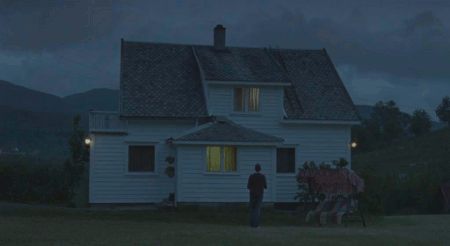ลำดับตอนที่ #4
คืนค่าการตั้งค่าทั้งหมด
คุณแน่ใจว่าต้องการคืนค่าการตั้งค่าทั้งหมด ?
ลำดับตอนที่ #4 : คาบเรียนอาจารย์เทเลอะ (Taylor)
สวัสีาวสวิฟี้ทุน้าาาา
Hello, Swifties!!!
วันนี้เราะมาเรียนภาษาอัฤษับุรูผู้มาวามสามารถอย่า
เทเลอร์ สวิฟันนนน
Let's learn English with our talented teacher , Taylor Swift!!!
รออะไรอยู่ละะ?
So, what are you waiting for?
ไปลุยันเลยยยย
Let's go!
1. มาเริ่ม้วยเพลแรันเลย "นิทานรั"
Let's start with our first song " Love Story"
That you were Romeo, you were throwing pebbles
And my daddy said, "Stay away from Juliet."
And I was crying on the staircase
Begging you, "Please don't go."
And my daddy said, "Stay away from Juliet."
And I was crying on the staircase
Begging you, "Please don't go."
ให้เรามาเรียนรู้ำศัพท์ในเพลนี้ัน่อนนะะ
Let's learn some vocabulary in this song.
Romeo and Juliet = โรมิโอับูเลียเป็นนิทานวามรัที่มีเรื่อรอบรัวเป็นอุปสรร์
Throw = ทิ้/ ว้า / ปา
Pebble = ้อนรว / ้อนหินเล็ๆ
Stay away = อยู่ให้ห่าๆ
Staircase = ั้นบันไ
Beg = อร้อ
วามหมายอเพลมีันี้
The meaning of this song in Thai.
ุือโรมิโอและุำลัปา้อนหินใส่หน้า่าบ้านัน
และพ่อันบอุว่าให้อยู่ห่าาันไว้
และัน็ไ้แ่ร้อไห้รบันไและอร้อุอย่าไป

** ารปาเศษหินใส่หน้า่าฝ่ายหิในวันธรรมอาววันือารเรียให้อีฝ่ายออมาเอันอย่าลับๆ
*** Throwing pebbles to a girl's room window in western culture to call the girl to meet secretly.
ไวยร์ที่วรำ
Grammar rules that you should take note.
Past Continuous Tense : Subject + was/were + Verb.ing + Object
For example : You were throwing pebbles.
(ุำลัปา้อนหิน)
I was crying on the staircase.
(ันำลัร้อไห้อยู่รบันไ)
>>>เราะใ้ Past Continuous Tense ับสิ่ที่ำลัเิึ้นในอี
>>>Past Continuous Tense is used for something that was happening in the past.
2. เพล่อมามีื่อว่า "ันรู้อยู่แล้วว่าุือัวปัหา"
Our next song's named " "I Knew You Were Trouble"
'Cause I knew you were trouble when you walked in
So shame on me now
Flew me to places I'd never been
'Til you put me down, oh
I knew you were trouble when you walked in
So shame on me now
Flew me to places I'd never been
Now I'm lying on the cold hard ground
So shame on me now
Flew me to places I'd never been
'Til you put me down, oh
I knew you were trouble when you walked in
So shame on me now
Flew me to places I'd never been
Now I'm lying on the cold hard ground
ให้เรามาเรียนรู้ำศัพท์ในเพลนี้ัน่อนนะะ
Let's learn some vocabulary in this song.
'Cause = ย่อมาาำว่า because ึ่หมายถึ "เพราะว่า"
Trouble = ปัหา
Shame = วามอับอายายหน้า
Flew = เป็นริยา่อที่สออ Fly ึ่หมายถึ "บิน"
'Til = ย่อมาาำว่า until ึ่หมายวามว่า "นระทั่"
Lying = มาาำว่า Lie เมื่อเิม -ing ึลายเป็น lying ึ่หมายถึ "นอน" หรือ " โห" ็ไ้ึ้นอยู่ับบริบท่าๆ
วามหมายอเพลมีันี้
The meaning of this song in Thai.
เพราะันรู้อยู่แล้วว่าุือัวปัหาั้แ่อนแรทีุ่เินเ้ามา
และอนนี้วามายหน้า็เป็นอัน
ุพาันบินสูไปที่ ที่ันไม่เยไปมา่อน
และแล้วุ็ปล่อยันลมา
เพราะันรู้อยู่แล้วว่าุือัวปัหาั้แ่อนแรทีุ่เินเ้ามา
และอนนี้ัน็้ออับอายายหน้า
ุพาันบินสูไปที่ ที่ันไม่เยไปมา่อน
แ่อนนี้ันำลันอนลบนพื้นินที่แ็และเยือเย็น
ไวยร์ที่วรำ
Grammar rules that you should take note.
Past Perfect Tense : Subject + Had + Verb(3) + object
For example : I had never been there.
(แ่่อนันยัไม่เยไปที่นั่นมา่อน)
Past Perfect Tense : ใ้บอเหุาร์ในอีที่สิ้นสุไปแล้ว ่อนะมีอีเหุาร์เ้ามาแทรทีหลั ึ่อาะใุ้่ับ Past present Tense ็ไ้ หรือแบบอีรี้านบน ที่ไม่มี Past Present Tense มาเี่ยว้อ ะหมายถึเหุาร์นั้นเยเป็นอย่านั้นในอีแ่อนนี้ไม่เป็นแบบนั้นแล้ว
Past Perfect Tense: use for telling past events that have ended Before having another event interrupted. Which may be used with Past present Tense. In the case of the above, that does not have Past present Tense involved, it means that the event had been like that in the past, but had already ended.
3. ออมาาป่า
Out of the woods
Looking at it now
It all seems so simple
We were lying on your couch
I remember
You took a Polaroid of us
Then discovered (then discovered)
The rest of the world was black and white
But we were in screaming color
And I remember thinking…
It all seems so simple
We were lying on your couch
I remember
You took a Polaroid of us
Then discovered (then discovered)
The rest of the world was black and white
But we were in screaming color
And I remember thinking…
Are we out of the woods?
วามหมายอเพลมีันี้
The meaning of this song in Thai.

Seem = ูเหมือน
Couch = โฟา
Remember = ำ
Polaroid = ภาพพาลารอย์
Discover = ้นพบ
The rest = ส่วนที่เหลือ
Scream = รี๊ร้อ
Woods = ป่าไม้
วามหมายอเพลมีันี้
The meaning of this song in Thai.
เมื่อมอูมันในอนนี้
มัน่าูเรียบ่ายมาเลย
พวเรานอนเล่นอยู่บนโฟา้วยัน
ันำไ้
ันถ่ายภาพพาลารอย์อเราสอน
แล้ว็้นพบว่า
ส่วนที่เหลืออโลเป็นสีาวำ
แ่อนนี้โลอพวเรา่ามีสีสัน
ันำอนที่ันำลััิอยู่ไ้ว่า
พวเราไ้ออมาาป่ารึยั? (ประมาว่า เราิแบบนี้อ่ะ ิถูแล้วหรอ)
(เราผ่านวิฤิมารึยั?)
ไวยร์ที่วรำ
Grammar rules that you should take note.
>>>ารั้ำถามโยใ้ Verb to be
>>>Asking questions using Verb to be
* ใ้ Verb to be นำหน้าำถาม่อนเสมอ
Always place Verb to be at the front.
For example : We are out of the woods? (ประโยบอเล่า)
(เราออมาาป่า)
Are we out of the woods? (ประโยำถาม)
(เราออมาาป่ารึยั?)
She is beautiful. (ประโยบอเล่า)
(เธอสวย)
Is she beautiful? (ประโยำถาม)
(เธอสวยรึเปล่า)
****โยำอบที่ะอบไ้็ือารอบ Yes ับ No
เ่น Yes, she is./ No, she isn't.
Yes, we are. / No, we are not.
*****The answers to this kind of question will be Yes and No.
For example : Yes, she is./No, she isn't.
Yes, we are./No we are not.
++++++++++++++++++++++++++++++++++++++++++++++++++++++++++++
ออบุ
Thank you
เก็บเข้าคอลเล็กชัน


ความคิดเห็น